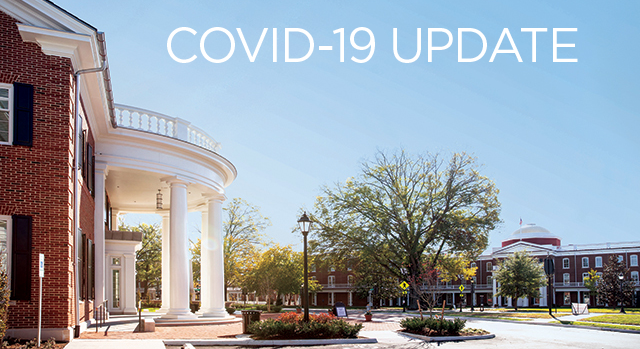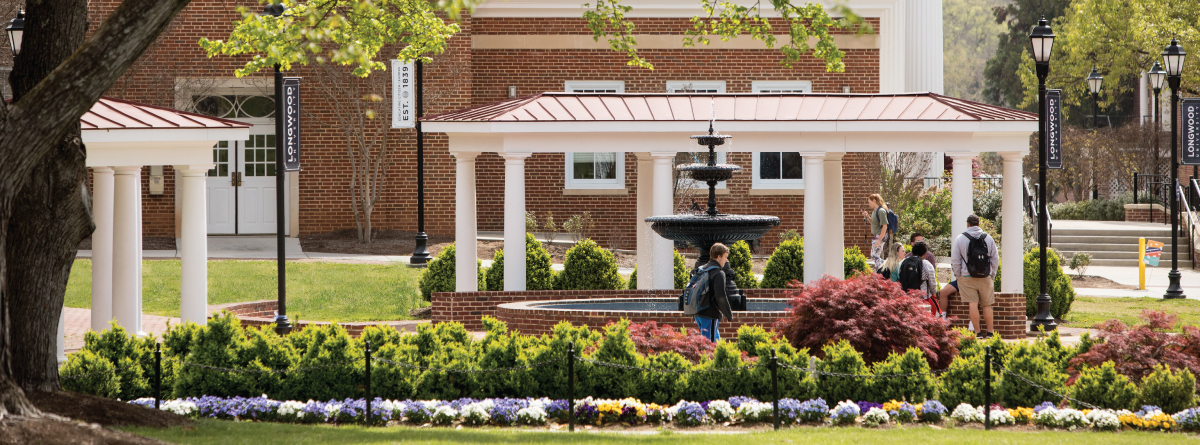In today’s post, I’d like to tell you about something that happened in the business school that exemplifies so much of what Longwood is about, especially
—Our commitment to preparing our students for the future, whatever that may look like
—Our faculty’s innovative thinking and willingness to go the extra mile
—Our network of alums who care about the success of our students and give so generously of their time
Here’s what happened.
Like most Longwood professors, Patti Carey, lecturer and director of student engagement and special initiatives in the College of Business and Economics, was faced this semester with the challenge of converting her in-person class, Management 391, to an online format. The class focuses on helping students to develop professional skills, including those needed to pull off a stellar job interview.
Mock interviews with volunteer business professionals are a critical component. They’re normally conducted in person on campus—but that wasn’t possible this semester.
So Carey and Nancy Postans, assistant director of Longwood’s McGaughy Professional Development Center, set about converting the interviews for 75 students to a virtual/remote format. The logistics of arranging those interviews with the 16 volunteer interviewers—half of whom were Longwood alums—was not a simple matter, but they got it done.
And, in fact, conducting the interviews using a virtual format was right on trend.
Now, more than ever, companies are relying on videoconferencing technology like Zoom, Google Hangout and Yello—as well as regular phone calls—to screen candidates. Some companies are even skipping in-person interviews altogether in the hiring process and may continue to do so after social-distancing requirements are lifted.
If you’ve never done one, a virtual job interview can be nerve-wracking the first time around, but the students taking Carey’s class this semester will be able to play it cool when they face that situation in the future.
“Some members of Generation Z seem to have an aversion to talking on the phone—it’s called ‘telephonophobia,’” said Carey. “Helping our students feel comfortable and confident in speaking professionally on the phone and being able to sell themselves well during a phone or virtual interview is critical.”
The volunteers, who work in a range of settings from businesses to government agencies to a biopharmaceutical company, each interviewed from three to seven students.
In addition to giving their time to conduct interviews, the Longwood alums who volunteered also took the time to answer my questions about the process.
“In my role I conduct many interviews,” said Jocelyn Blanchard ’99, senior manager for technology training at CarMax. “I’ve seen great people get passed up not because they aren’t qualified but because they couldn’t articulate why they were the best fit for the role. Interviewing is an art and, like many other things in life, the more you practice and get feedback, the better you’ll get.
“Video interviews are like in-person interviews in some ways, but different in others. Teaching students how to get familiar with the nuances of video interviewing is just as important as getting them prepared for in-person interviews,” she added.
Dan Hughes ’13, a senior manager at BGS Consulting in the Washington, D.C., area, interviewed seven students this semester and has helped out as an interviewer for the last five years.
“You could definitely tell it was more nerve-wracking for most of the students this year,” said Hughes, who has helped with the interviews for the last five years. “It’s a little harder for them to read my body language in a video. I also noticed that the students were pausing in their answers, and those gaps in the conversation seemed more prominent than in person.”
Hughes said students became less nervous and more comfortable as the interview progressed, indicating that the experience would help prepare them for interviews when a real job was at stake.
Gillian Coleman ’22, an economics major and a student in the class this year, agrees.
“I think having our interviews like this was extremely valuable. Especially in this day and time, everything is becoming more electronic and less face-to-face.”
“This gave me a way to have that first experience in a way that I knew wasn’t make or break,” Coleman continued. “I was able to really take in the experience instead of being worried that I was making a mistake that would impact my likelihood of getting a job. Overall it was just a great learning experience.”
Coleman was interviewed by Chris Tunstall ’88, assistant vice president for human resources at the Federal Reserve Bank in Richmond, who said he was particularly impressed with how she handled her interview. “She clearly demonstrated her strengths in communication skills, work ethic and learning agility,” he said.
Also helping with the interviews this semester were these Longwood alums:
—Frank Bowman ’81, environmental specialist for the Virginia Department of Environmental Quality
—Tim Davis ’16, senior consultant at A-LIGN, a CPA firm specializing in cybersecurity
—Kimberly Garrett ’86, executive sales specialist at AstraZeneca
—Corrine Louden ’02, deputy inspector general in the Office of the State Inspector General
—Sally Pearson ’86, commissioner of the revenue for King William County
Tunstall, who also has volunteered to interview students for several years, said more and more organizations—including the Federal Reserve—are using virtual interviews in their job-selection processes, an observation that was echoed by several of the alumni volunteers.
“It’s critical for candidates to become familiar with this technology and practice using it.”
“Lancers will be more prepared for the future through this experience,” Tunstall said.
Carey is thinking the same way.
“When we go back to face-to-face classes, I am seriously considering keeping the virtual/phone interview assignment in addition to the face-to-face one,” she said. “I’d love for the students to have both experiences because they are both relevant and skill-building.”
—Sabrina Brown



